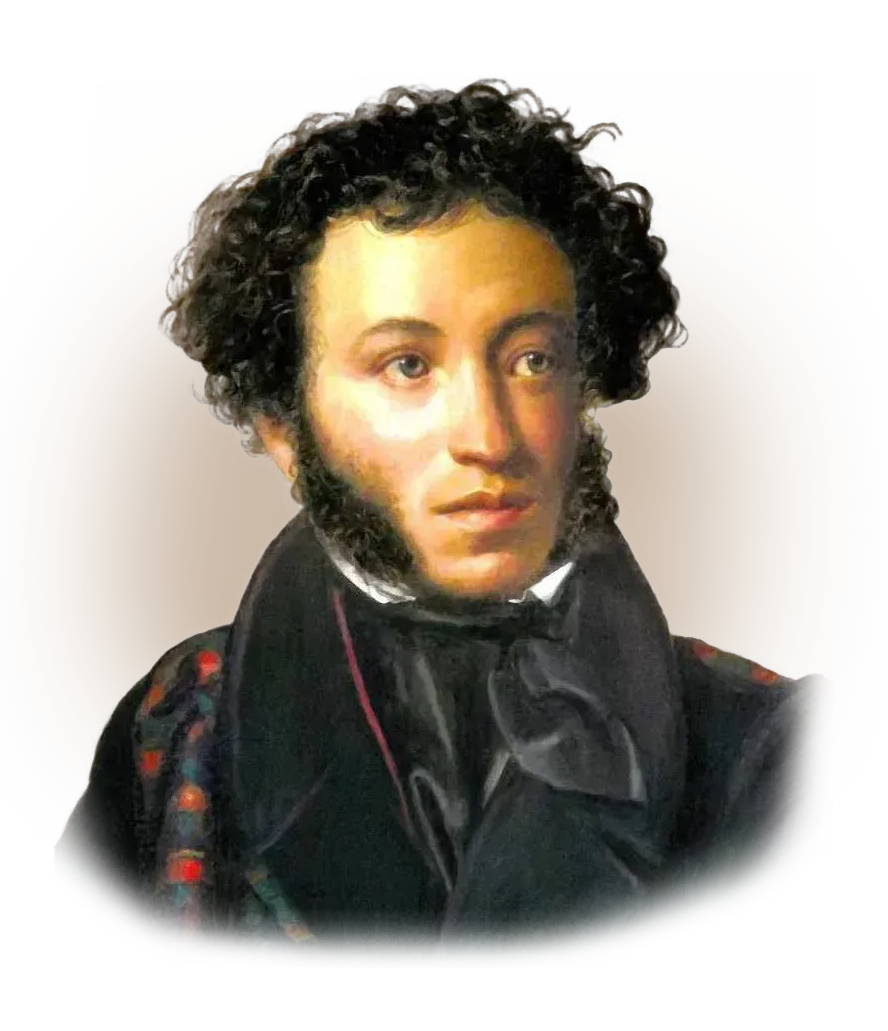Biography
Date and place of birth: June 6, 1799, Moscow
Date and place of death: February 10, 1837, St. Petersburg
Occupation: poet, prose writer, playwright, literary critic, translator, publicist, historian.
Movement: romanticism, realism.
Genre: poem, novel (historical novel, novel in verse, robbery novel), play, story, fairy tale
Years of oeuvre: 1814-1837
Alexander Pushkin began to write his first works at the age of seven. During his years in the Lyceum he became famous when he read his poem to Gavriil Derzhavin. Pushkin was the first Russian writer who began to earn his living by literary work. He created not only lyric poems, but also fairy tales, historical prose and works in support of revolutionaries – the poet was even sent into exile for his freethinking.
From one extreme to the other
Alexander Pushkin was born into an impoverished noble family on June 6, 1799. In his early childhood he was a taciturn and sedentary child – his elder sister Olga recalled that until the age of six the boy “was just a laggard. Initial education Pushkin was at home. His upbringing was no different from the customary system then in noble families: his parents hired governesses and teachers from France, Germany, England and Russia.



Education was given Pushkin hard, and teachers noted that he was not diligent. Soon, however, the boy was fond of reading. “Spent sleepless nights and secretly devoured books one after another in his father’s study,” his younger brother Lev later recalled.
“I don’t know what my eldest grandson will turn out to be. The boy is clever and eager for books, but he studies poorly, rarely when he gives his lesson in order – then you do not shake him up, do not drive him to play with children, then suddenly so turns and disperses, that nothing can not calm him: from one extreme to another rushes, he has no middle ground” – Maria Hannibal
His love of reading grew into attempts to create his own texts. Already at the age of seven, Pushkin was composing little comedies in French, imitating Moliere. Later, after reading the works of La Fontaine, the young author wanted to write fables. And after getting acquainted with Voltaire’s Henriade, Pushkin conceived a poem in six songs: all the books he read inspired the novice author.
The Frenchman at the Tsarskoye Selo Lyceum
In 1811 Pushkin’s parents decided to send their son to the Jesuit College, but their plans changed when a lyceum for noble children opened in Tsarskoye Selo. On the protection of friends the Pushkins placed their 12 year old son in an elite institution. Initially it was intended to prepare children of the imperial family and their peers for higher civil ranks. But the status of the Lyceum lowered: Pushkin studied in a privileged and closed institution, but among the equals of the children of impoverished families. Within the walls of the Lyceum, many became close friends. Three friends – Ivan Pushchin, Anton Delvig, Wilhelm Kuchelbecker – remained friends of Pushkin for life.
The Lyceum was taught by the famous lawyer Alexander Kunitsyn, philosopher Alexander Galich and philologist Nikolai Koshansky. It was the professors who had a great influence on the intellectual and moral development of the Lyceum pupils – their relatives could only visit their children on weekends. On weekdays the lessons started at 7 am and lasted until late at night. During his studies Alexander Pushkin saw his alma mater as a “monastery” and dreamed of the freedom that would come with the graduation of the Lyceum.

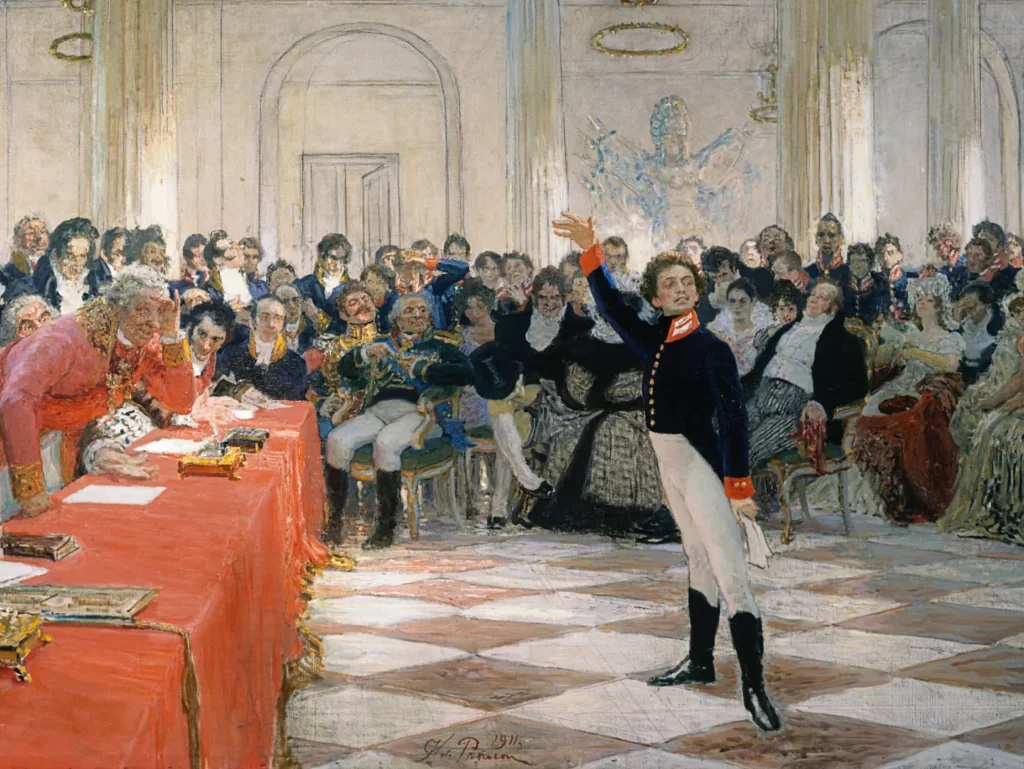

Pushkin studied not very well, especially hard for a young writer given logic and mathematics. With a brilliant memory he lacked diligence and attention. However, the teachers noted the erudition of pupils. In the Lyceum, he continued to read and write many texts in French. Lyceum student Sergei Komovsky recalled that because of his love for this language Pushkin “was called… in mockery the Frenchman, and by the physique and some habits of the monkey and even a mixture of monkey and tiger.
In Russian Alexander Pushkin composed small epigrams and messages, and outlined the structure of his future autobiography. The young author was so fond of literary creativity that the ideas of works were born one after another for several months ahead: “Yesterday I wrote the third chapter of Fatham, or the Mind of Man. I began a comedy – I do not know whether I will finish it. On the third day I wanted to write an ironic poem “Igor and Olga”. In the summer I will write “A Picture of Tsarskoye Selo”. Pushkin wrote poems. In 1814 he first published one of them – “To a friend, poet” – under the pseudonym of Alexander N.K.S.P. in the magazine “Herald of Europe”.
The first major success awaited Pushkin in 1815 during the winter transfer exam – 15-year-old high school student read his poem “Memories of Tsarskoye Selo. Gavriel Derzhavin was present at the exam, he was shocked by a creation of a young poet. Pushkin later wrote: “I do not remember how I finished my reading; I do not remember where I ran away. Derzhavin was delighted; he demanded me, wanted to embrace me … I was looked for, but could not find.
Pushkin’s service and career
In 1817 Alexander Pushkin graduated from the Lyceum. In terms of academic achievement he was 24 out of 29 graduates. Pushkin was sent to the College of Foreign Affairs – an official X class. But it was only listed: civil service is little attracted to the young man. After six years of study Pushkin plunged into the social life of the capital and, as a famous and distinguished author, got into the St. Petersburg society of writers. While still in the Lyceum he became a member of the literary circle “Arzamas” which fought against the archaic linguistic traditions.



In 1819 Pushkin joined the literary and theatrical society “The Green Lamp” under the Decembrist Union of Welfare. Its members promoted freedom-loving ideas. At the meetings, they recited poems, discussed theater premieres, criticized journalistic articles. Here were conducted not only secular disputes, but also political conversations. All this was reflected in Pushkin’s work: he wrote several epigrams on the statesmen of the time, the ode “Liberty”, the poems “To Chaadayev” and “The Village”.
These sharp political works provoked the wrath of Alexander I, and the emperor decided to send Pushkin to Siberia or to the Solovetsky monastery. However, Nikolai Karamzin interceded for the poet: the service of Pushkin was transferred from the capital to the South. Before his departure, in 1820, Alexander Pushkin finished his poem “Ruslan and Lyudmila. Vasily Zhukovsky highly appreciated this work and gave the poet his portrait with the signature “To the victorious pupil from the defeated teacher.
Southern Link
In the spring of 1820 Alexander Pushkin went to Kishinev, to the office of the chief trustee of the colonists of the Southern region. On the way to the new place of service the poet became very ill. To improve his health, Pushkin went first to the Caucasus, then – in the Crimea. Traveling impressions of the south of the empire was later reflected in some of his works. Finally, in September 1820 Pushkin arrived in Kishinev.
The new chief lieutenant-general Ivan Inzov related to the service of his subordinate indulgently and did not assign him any official matters. Pushkin used his time as he pleased: he communicated with members of the Union of Welfare, joined the Masonic lodge “Ovid”. In his spare time, he still wrote. During this period appeared “The Prisoner of the Caucasus”, “Gavriiliada”, “The Robber Brothers”, “The Fountain of Bakhchisarai”, “The Song of Oleg the Veschem”. Pushkin also began work on the novel in verse, Eugene Onegin.
At this time in St. Petersburg began to come out the poet’s books – Ruslan and Lyudmila, The Prisoner of the Caucasus, The Fountain of Bakhchisarai. They also began Pushkin’s professional activity: he was the first writer in Russia who began to earn money by literary work.
In 1823 Pushkin moved to Odessa. Here he got a job in the office of Count Vorontsov. Soon, however, official and personal conflicts led Pushkin to ask for his resignation.
Pushkin in Mikhailovsky
In Mikhailovskoye Pushkin led a secluded life. His parents, along with his sister Olga and brother Leo left the estate, so that the exile did not adversely affect the family. The poet was initially happy with the peace and quiet, but with the onset of autumn coldness depressed. The only entertainment for Pushkin was talking with his nanny Arina Rodionovna. Her tales, as the poet said, corrected the shortcomings of the French upbringing. He wrote down the plots of magical stories, and later used them in his works.
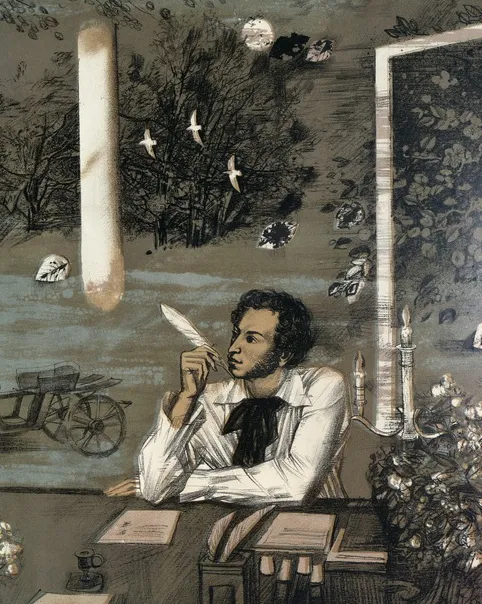


The reclusive way of life did not become destructive for Pushkin, rather the opposite: the writer read a lot, worked, reflected on his work. In the first autumn of Mikhailovsky he began to write “Boris Godunov.” This tragedy was an important stage in the poet’s work: he moved from romanticism with its heroics to a realistic embodiment of the characters.
The exoticism and abstractions left the poet’s work, and contemporary realities came to the fore. Pushkin finished the poem “To the sea” he started in Odessa, resumed work on his autobiographical notes, wrote a mock poem “Count Nulin”, a love poem-dedication “To ***”.
I want to publish or publish myself
On December 1, 1825, Alexander I died. The emperor left no heirs, and the presumed emperor Constantine, the next oldest brother, abdicated the throne. Nicholas Pavlovich became the pretender to power. Members of the Northern Secret Society decided to take advantage of the interregnum. On the morning of December 26, an uprising was scheduled. The participants planned to take troops to Senate Square and force the senators to sign a manifesto to the Russian people on the convening of the Constituent Assembly instead of oathing to Nicholas. A constitutional monarchy or republic was to be established in Russia. However, the coup attempt failed.
Pushkin learned about the Decembrist uprising while in exile. The investigation of the case did not promise anything good: the poet’s poems were found at all of those arrested. The writer had to give a receipt that he was not in secret societies, of their existence did not know. Pushkin, though worried about his situation, but hoped that the new emperor would forgive him and release him from exile.
“I have already written to the tsar, immediately after the end of the investigation, concluding my petition exactly in your words. I am waiting for a reply, but I have little hope. Rebellion and revolution have never pleased me, it is true; but I have been in touch with almost everyone and in correspondence with many of the conspirators. All the outrageous manuscripts went under my name, as all the lewd ones went under Barkov’s. If I had been demanded by the commission, I would of course have been excused, but I was left alone, and it does not seem to be for good. However, hell knows” – from Alexander Pushkin’s letter to Prince Pyotr Vyazemsky.
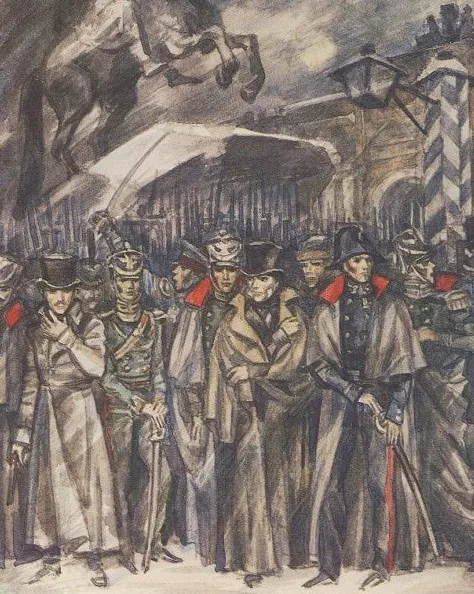


In 1826 the first collection Poems of Alexander Pushkin was published. It was a huge success: the volume was sold out in a few weeks. That year Pushkin wrote the following chapters of Eugene Onegin, but he did not hurry to publish them, as well as other works. In response to the publisher Peter Pletnev, he sharply replied: “I myself want to publish or give out in the light” – that is, be released from exile.
September 20, 1826 Pushkin was summoned to an audience with Tsar Nicholas I. After the brutal massacre of the Decembrists, the emperor wanted to win over society, so he returned from exile, a favorite of all the famous poet. The monarch not only released Pushkin, but guaranteed the highest patronage and offered to become his personal censor.
After a conversation with Nicholas I, the writer hoped to be completely free to create. But the tsar had other plans: Pushkin was to become a poet at court. The calculation did not pay off. In 1827 Pushkin wrote the poem “Arion”, in which he expressed his loyalty to the ideas of liberation. And through the Decembrist’s wife, Alexandra Muravyeva, sent to the Siberian penal colony the poem “In the depths of the Siberian ore” – a message to the revolutionaries.
Censorship intensified, the personal correspondence of the poet looked through, about his every step reported to the chief of the Third Department of the Gendarmes Alexander Benkendorf. Pushkin was even forbidden to travel freely around the country and read his works in public. Despite the strict controls, he continued to defend the freethinking ideas and devoted to this subject the poems “The Poet and the Crowd”, “The Poet.
Pushkin’s personal life
In 1829, Alexander Pushkin met Natalia Goncharova at one of the balls. The girl was 16 years old at that time, while the poet was almost 30. The first beauty of Moscow immediately captivated Pushkin, and a few months later he made a proposal to Goncharova. But her mother referred to the girl’s young age and did not give her consent at once. Upset, the writer left Moscow to join his brother in the Caucasus, where the war was going on at the time.
“When I saw her [Natalia Goncharova] for the first time, her beauty was just beginning to be noticed in society. I fell in love with her, I got dizzy, I asked for her hand. Your answer, with all its vagueness, almost drove me mad; the same night I left for the army. You will ask me why? I swear, I do not know how to tell myself; but involuntary melancholy drove me from Moscow: I could not bear the presence of yours and hers in it” – from Alexander Pushkin’s letter to the mother of Natalia Goncharova.

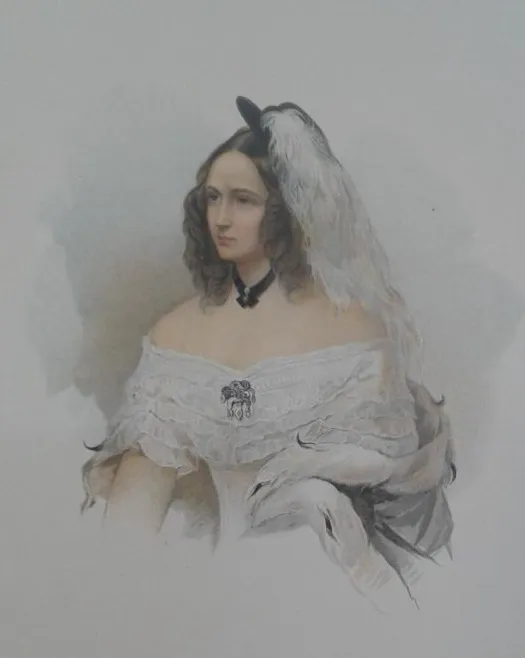

In the Caucasus Pushkin wrote a cycle of poems dedicated to this land: “The Caucasus”, “On the hills of Georgia lies the night gloom”, “Landslide”, “Delibash” and “The monastery on Kazbek”. In 1830 the writer returned to Moscow and once again proposed to Natalia Goncharova. This time the parents blessed the couple.
However, the wedding prevented the fact that Pushkin had no property. Then the poet’s father allocated to his son part of the family estate Boldino in Nizhny Novgorod province, the village of Kistenevo, together with two hundred peasants. In the summer of 1830 Pushkin went there to settle legal matters.
Boldin Autumn
The writer expected to stay in Boldino for no more than a month, but the cholera epidemic changed his plans. It was impossible to leave the village, so the writer spent three months here.
Boldino Autumn is a period of unprecedented creative flight. In Boldin Pushkin finished “Eugene Onegin,” wrote “The Tale of the late Ivan Petrovich Belkin,” “The Story of the Village Goryukhin,” “Little Tragedies,” drama “Mermaid,” poem “Little House at Colomna” and many poems.
Pushkin returned to Moscow in December 1830, and a few months later married Natalia Goncharova. The poet dreamed of solitude, a quiet family life and quiet work on books. However, his wishes were not destined to come true.
The Duel and Death of a Poet
In 1831 Alexander Pushkin was hired as a historiographer to write the History of Peter. But the writer was more fascinated by the biography of the rebel Yemelyan Pugachev. Pushkin planned to create an epic novel about this era. First, he gathered information in the archives, then traveled to the areas of the Pugachev rebellion – the Volga and the Urals – to reliably describe the events of that time.
After the expedition, Alexander Pushkin went to Boldino. On his family estate he worked on a scholarly work “The History of Pugachev”, wrote “The Bronze Horseman”, “Angelo”, “The Queen of Spades”, “The Tale of the Fisherman and the Fish” and “The Tale of the Dead Tsarevna and the Seven Bogatyrs”. The second Boldino Autumn was twice as short as the previous one, but no less productive for Pushkin.

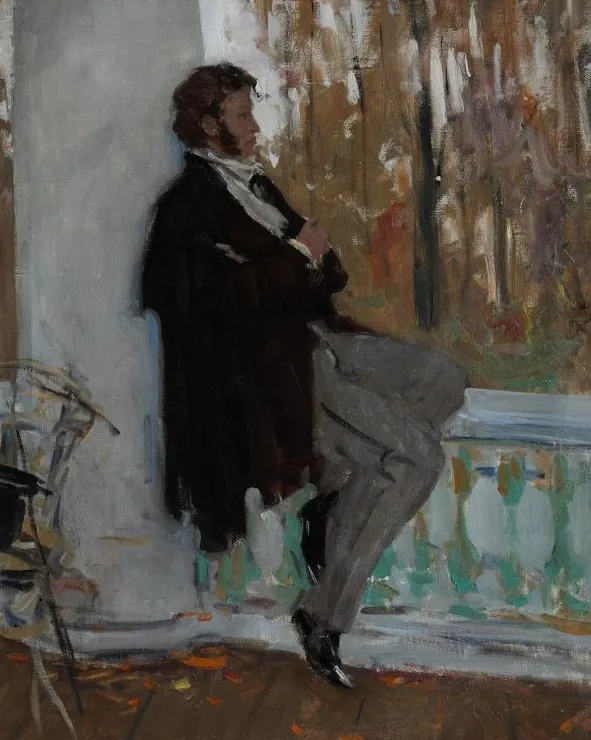

Nicholas I bestowed upon Pushkin a junior court rank – the rank of gentleman of the bedchamber. Now the four Pushkins could officially invite the court balls. This position the poet considered insulting for his age. The writer wanted to reject the new title, but had to put up with it.
In the 1830s Pushkin was already writing only realistic works. But his contemporaries were not ready for the new literary direction, which described social inequality, historical phenomena and other complex aspects of life. Fellow writers did not accept the new works of the writer, in court circles he also did not meet the support. In St. Petersburg there was gossip about Pushkin’s wife and her admirers, the poet received anonymous letters. The poet could not remain cold-blooded and put up with insulting rumors.
February 8, 1837 Alexander Pushkin had a duel with Georges Dantes – the main intrigue, defaming the reputation of Natalia Pushkina. During the duel the poet was seriously wounded and died two days later. Alexander Pushkin was buried on the territory of Svyatogorsky monastery in Pskov province.
